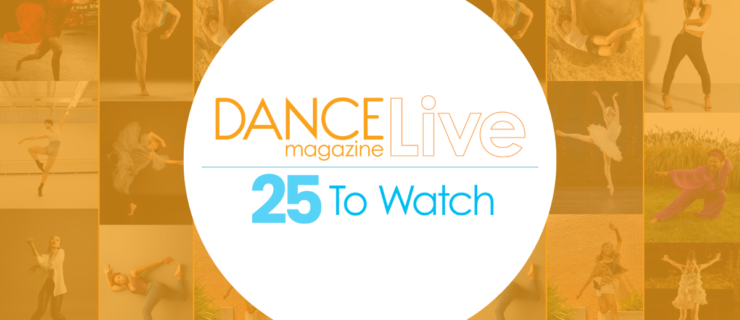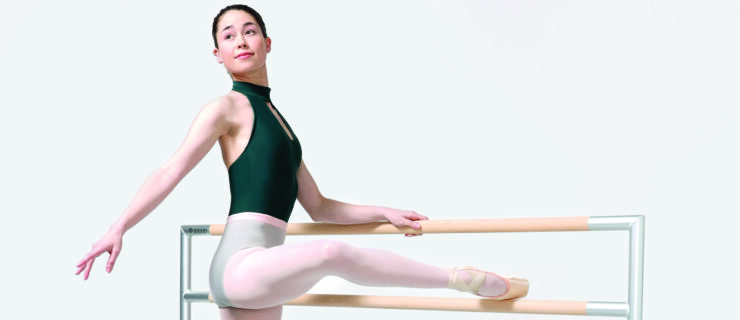What Dancers Can Do with a College Degree that They Can't Do Without One
Let’s say this right up front: Everyone agrees that a talented dancer can move to NYC or L.A., start auditioning, and get booked without a dance degree. And graduating from a program doesn’t guarantee that you’ll have a successful dance career. So, what weight does a degree carry in the industry? “The reality today is that if you don’t get a degree, you will be at a disadvantage,” says Dr. Sally R. Sommer, director of the Florida State University dance department’s semester-long immersion program in NYC. Proactive and engaged college students become more adaptable, thoughtful, and resilient dancers. Combine these qualities with a deeper understanding of dance history, practical experience with the professional expectations of choreographers, and access to a growing community of peers, guest artists, faculty, and alumni, and it’s easy to see why a degree could mean more doors are open to you.
Curriculum, Not Just Class
First, there’s a big difference between simply taking class and following a course structure designed to give you technique and tools for self-care. “In a college program, it’s pretty much a given that you’ll be dancing a lot and will graduate in great physical shape, but your curriculum is set up to progressively provide so many other benefits,” says Darrah Carr, board of study coordinator for the dance program at SUNY Purchase. “Things like education on injury prevention and developing a warm-up routine will actually enable you to have a longer career. It’s very difficult to replicate such comprehensive training on your own.”
“I felt very prepared for the professional world after college, because I got the training along with the privilege of being able
to focus,” says Lorrin Brubaker, who graduated from Juilliard in 2017 and now dances with BODYTRAFFIC. “I wasn’t searching out classes or worrying about how much they cost—the structure of the program was made specifically to turn out a versatile, professional contemporary dancer, and I could trust in that.” Receiving a grade in dance classes also trains dancers to be more aware of their approach. Grades can serve as a quantifiable way to hold dancers accountable for how they’re approaching the work.
The Pro Treatment
While coursework may be largely laid out for them, dance program students learn to manage a rigorous schedule and take
on professional responsibilities that will seamlessly take them into the industry. “In productions, we parallel Equity, AGMA, and SAG rules, so the students experience the same reality checks as they will in business,” says Jo Rowan, dance chair
for the Ann Lacy School of Dance and Entertainment at Oklahoma City University. At OCU, dancers are also taught contract law, how to get agents and managers, and how to navigate the culture of entertainment cities like L.A., Las Vegas, and NYC.
 Florida State University student Jenée-Daria Strand
Florida State University student Jenée-Daria Strand
The idea is that upon graduation, students will already be used to a professional rehearsal environment, where dancers are expected to show up on time, retain material week to week, and help to generate material and make choices collaboratively. “You’re essentially learning to be a part of a company within a school bubble,” says Carr.
Talent and Skills for Today’s Companies
These days, many companies are changing in ways that favor college-educated dancers. “A singular aesthetic is far less common now than a blending or fusion of styles,” says Carr. “There’s a practicality to getting a liberal arts education, because artists want to work with versatile dancers who are also well-rounded people.” Having an understanding of dance history and the roots of each discipline can give you the context you need to nail certain performance qualities. And a degree proves you’ve taken the time to work on your mind and body, which are very much connected.
Many companies also want members who are able to help with social media, press releases, and other business needs to stretch the budget, says Sommer: “Company leaders may be writing grants in their bedrooms, and dancers with degrees are well-equipped for that DIY world.” College dance programs also give students a taste of what it takes to present their own work, says Carr, which is extremely helpful if you want to choreograph someday. “Dancers learn to edit videos and talk to a lighting designer—pragmatic skills that augment your technique and creative abilities.”
A Network to Get Work
Perhaps one of the most tangible benefits of graduating with a BA, BFA, or BS is entering the industry with a built-in career network. This might mean you already know the people who are hiring, or can get you hired, and have to spend less time and energy to break through. “I’m actually seeing many companies move away from the cattle-call audition—choreographers are meeting prospective dancers through workshops, intensives, and, yes, by working with college students,” says Carr.
 An American Spirit Dance Company rehearsal at OCU (photo by Ryan Barrett, courtesy OCU)
An American Spirit Dance Company rehearsal at OCU (photo by Ryan Barrett, courtesy OCU)
Brubaker reconnected with the directors of BODYTRAFFIC, after initially meeting them at a winter intensive, thanks to a Juilliard classmate. “My friend was in the company and posted a video of me dancing that caught their attention,” says Brubaker. “I can honestly say I wouldn’t have gotten the same opportunities without my degree and, partly, Juilliard’s name recognition.”
None of this means that you can collect a degree and sit back; you still have to be proactive to build a career and continue to grow as a performer. But the incredible resources built into a dance program are likely to put the tools for a great career within your grasp.
Get a Degree to Nab These Jobs
• Company director
• Marketing/PR/social media manager for company, venue, or festival
• Company operations manager or development officer
• Movement therapist
• Physical therapist
• Dance historian
• Dance critic/journalist (editor at Dance Spirit, anyone?)
• Dance filmmaker/photographer
• Costume designer
• College dance professor
• Talent agent/manager
The Fallback Fallacy
We know what you’re thinking, but getting a degree is not about developing a safety net in case you can’t dance someday. It has everything to do with building a solid foundation for a long and fulfilling career. In fact, if you’re not sure exactly where you fit in the dance world as you exit high school, the right college program may help you find your path, suggests Juilliard graduate Lorrin Brubaker. “School is a great place to focus on your craft, gain the tools you need to get started, and get a taste of everything,” he says. Dr. Sally R. Sommer, director of the NYC dance immersion program at Florida State University, agrees: “Students learn to read the dance ecosystem and find a niche.” Plus, there’s no doubt a degree will help if you choose to transition into a new career someday—you’re that much closer to becoming a physical therapist, arts administrator, or talent agent than you’d be without one.
A version of this story appeared in the September 2018 issue of Dance Spirit with the title “The Importance of a Dance Degree.”



